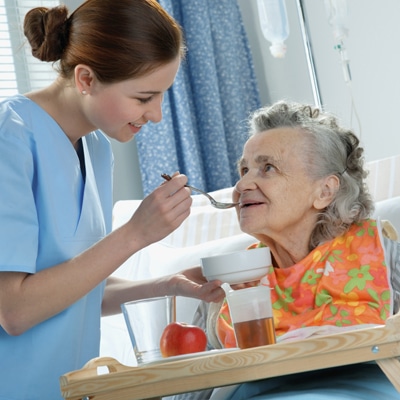 Malnutrition Task Force
Malnutrition Task Force
It is rewarding to see research in malnutrition including the people that are actually involved with the day to day care of older people. So I was delighted to come across this week a Malnutrition Task Force report undertaken to investigate which types of malnutrition messages may be effective, which included research with care home managers and care assistants.
Focus groups and workshops were undertaken to explore learnings around five marketing messages that may resonate for care staff. These messages were:
- Will you help my mum to eat?
- Malnutrition increases the risks of ill health and infections, and results in a longer recovery time from surgery and illness.
- Have you noticed signs of malnutrition in your patients? Symptoms of malnutrition are: weight loss, constipation, lethargy.
- Are you doing all you can to prevent malnutrition in your residents?
- Enjoyed your lunch? Have your residents?
Guidance on tackling malnutrition
Care staff suggested that any framing of messages as challenges or questions was seen as effective at drawing in staff and providing an onus on them to take action. Some managers thought more open questions like ‘What are you doing to prevent malnutrition?’ may be more effective. However without supporting information, care assistants felt that this type of message burdens them with a responsibility, without giving them the support necessary to fulfil that responsibility.
The emotional nature of the message ‘Will you help my mum to eat?’ appealed to care home workers who often have very personal relationships with residents, and resonates with their experiences of being asked for help and advice by the relatives of patients. The message ‘Enjoyed your lunch? Have your residents? Was not well received with staff, as it disregarded the fact that they barely have time for lunch. Managers further noted that staff should not be made to feel guilty for taking the time to eat.
The authors concluded from the group discussions that messages about malnutrition for care home staff would ideally:
- Drive awareness of the seriousness of weight loss and a loss of appetite in older people – This may be best done by explicating the symptoms of malnutrition, the links between malnutrition and ill health, and the consequences of malnutrition. The message ‘Malnutrition increases the risks of ill health’ resonates with the strong sense of the duty of care staff owe to residents. It also makes a clear, but not always obvious link, between malnutrition and ill health, which care assistants may not always make themselves.
- Recognise that care home staff will react differently to messages than hospital staff – Messages that have an emotional frame can appeal to care home assistants, who have more time than hospital staff to develop strong personal relationships. This may allow them to observe some of the less obvious signs of malnutrition like confusion. Care home managers recommend tailoring messages to suit a care home setting so that the consequences listed fit with situations care home assistants frequently encounter (e.g. falls, UTIs, pressure sores and confusion), rather than more hospital-focussed consequences like longer recovery time from surgery.
- Be sensitive to the time/ resource constraints – The messages should provide pragmatic, realistic support and advice on next steps, given time and resource constraints, and encourage more junior professionals to take some ownership of the issue themselves.
As well as messaging, effective calls to action are also necessary. These would ideally:
- Use language that gives a strong sense of urgency;
- Encourage care assistants to be pro-active and go further than simply reporting their concerns;
- Use language that encourages care assistants to approach managers with minor concerns as well as serious ones, for example: use of ‘talk to’ rather than ‘inform’ your manager.
The messages highlighted in the report may well resonate with your care home staff – in any case, a consideration of their relevance may bring about constructive discussion in this area.




